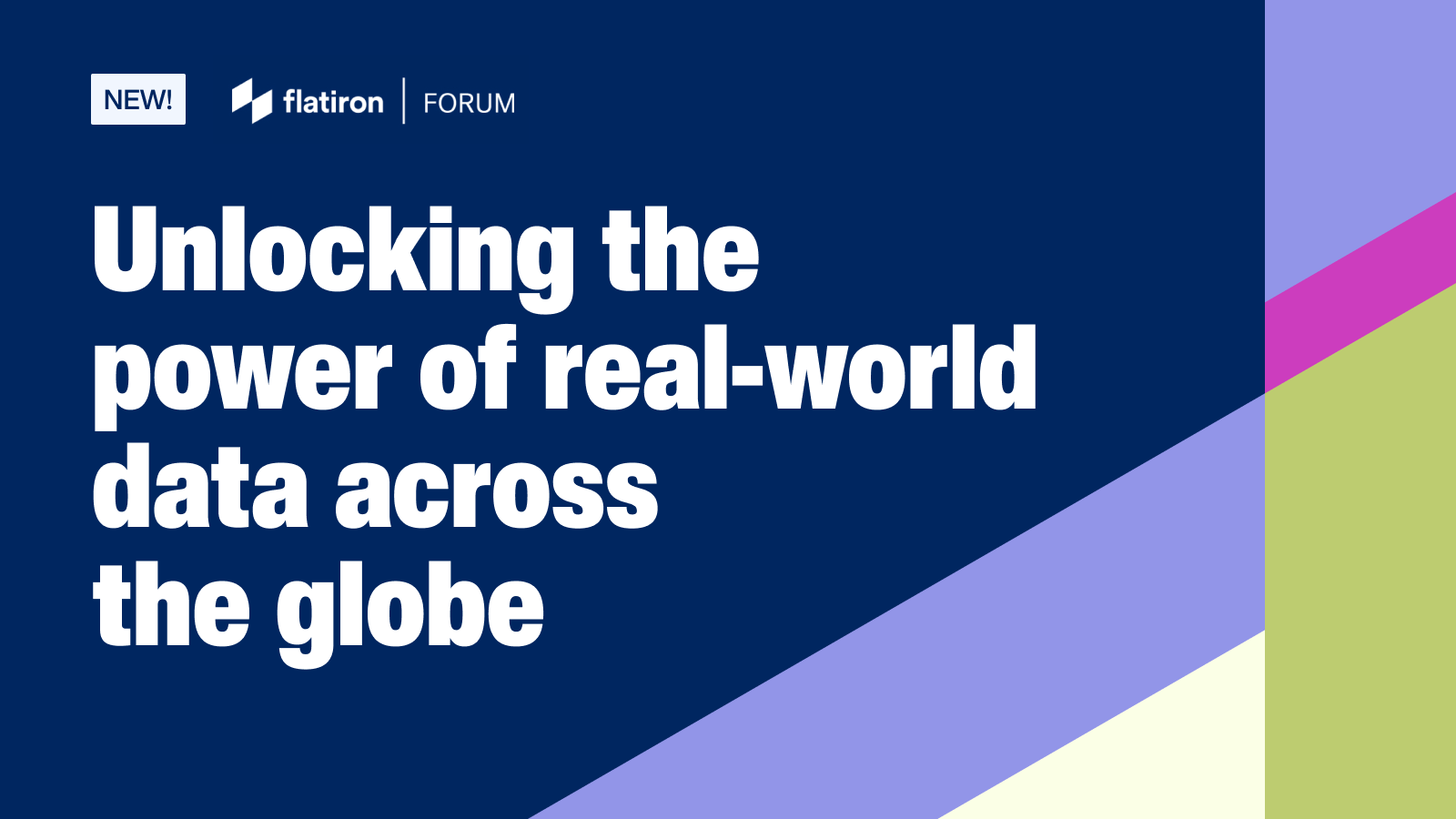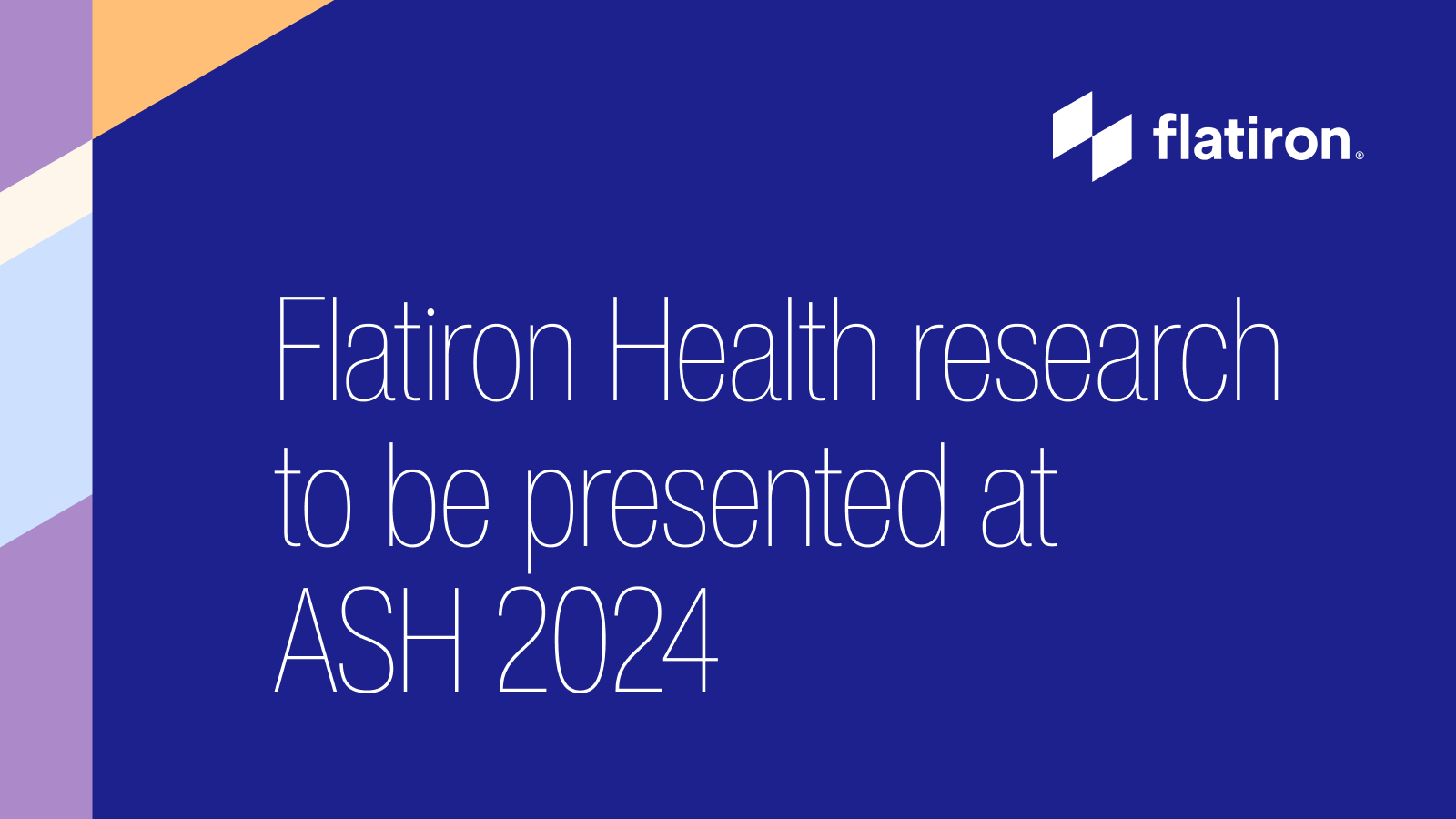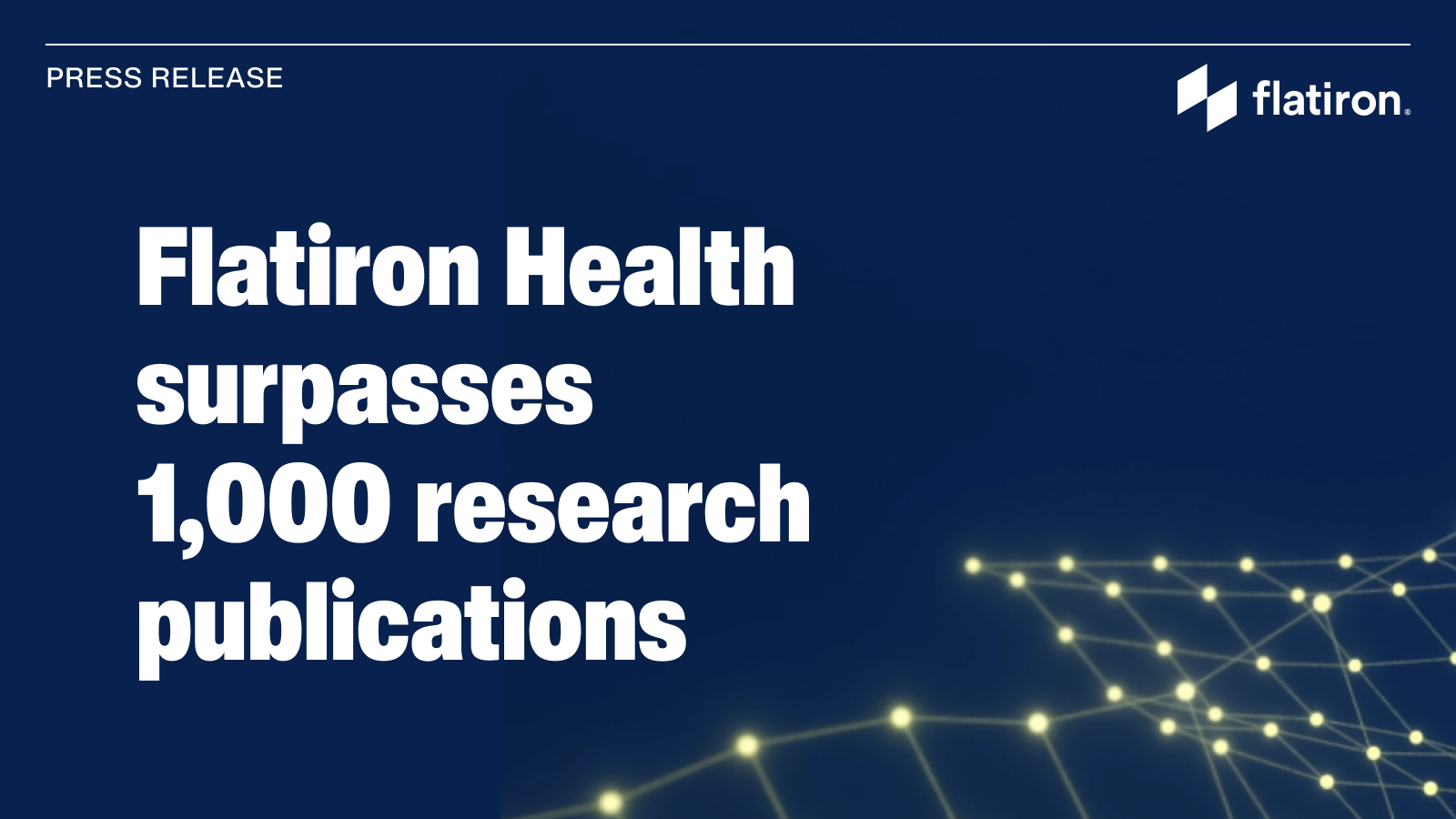As we continue to push the boundaries of what’s possible with real-world data (RWD), I’m excited to share some of the latest research accomplishments from Flatiron Health’s FORUM and our international data initiatives. These efforts are not only advancing the field of oncology but also reshaping how we think about health technology assessments (HTAs) and global evidence generation. Here’s a glimpse into why these findings are novel and how they’re making an impact.
Flatiron FORUM: Pioneering Transportability of Real-World Evidence
One of the most exciting developments from Flatiron FORUM is our work on the transportability of real-world evidence (RWE) between regions. Historically, HTA bodies have preferred local data to inform decisions about the value of new treatments. However, local data is often scarce and lacks clinical depth, especially in smaller markets or for rare diseases. This is where Flatiron FORUM comes in, a consortium of multiple biopharma and life science companies that work closely with Flatiron to advance the impact and outcomes of RWE.
Our recent benchmarking studies have demonstrated situations where RWE from the US can be transported to other countries, such as the UK, to fill evidence gaps and address research needs. For example, in our metastatic breast cancer (mBC) transportability study, we compared overall survival (OS) between the US and England, including:
- Patient characteristics and treatment patterns were broadly comparable across cohorts, with only minor observable differences.
- The unadjusted survival data from the US showed reasonable similarity to observed outcomes in England, suggesting that survival rates may be comparable even without adjustments, particularly as observable characteristics were similar.
- Predictions of survival outcomes in England were similar regardless of using US data adjusted with patient-level data versus aggregated population-level data from England. This new knowledge will have great impact to support the external validity study designs for transporting outcomes in the future!
- These results were consistent across breast cancer subtypes including HR+/HER2-, HR+/HER2+, HR-/HER2-, and HR-/HER2-.
- Our study used nationally representative RWD in the US (Flatiron Health) and England (NCRAS) from 2015-2021.
The findings showed that, with appropriate adjustments, US data could be used to inform HTA decisions in another country, providing a novel solution to the challenge of local data scarcity. This research is groundbreaking because it opens the door for more efficient, global evidence generation, reducing the time and cost associated with generating local data for every market.
Transportability can be feasible when the treatment landscape and clinical guidelines are similar between two countries, but in some situations that is not the case. When healthcare systems and treatment practices are meaningfully different in two regions during a time period of interest, it is much more critical and valuable to access local patient-level RWD for the country of interest.
Flatiron International Data: A Global Perspective on Oncology
Our multinational EHR-derived data initiatives have also made significant strides, particularly in Europe and Japan. At recent conferences in 2024, including ICPE, ESMO, ACPE, and ISPOR Europe, we shared findings from our oncology datasets in Germany, the UK, and Japan. These datasets are unique because they combine structured and unstructured EHR data, curated with local expert clinical abstraction in each region.
At ISPE 2024, we presented key findings from our European data, highlighting the prevalence of biomarker positivity in breast cancer and non-small cell lung cancer (NSCLC) patients. These insights are critical for understanding treatment patterns and outcomes in different regions, and they highlight the potential of multinational RWD to inform global oncology research.
In Japan, we’ve been working closely with local cancer centers to curate high-quality, research-ready datasets. We recently presented our recent analysis of stage IV colorectal cancer at ACPE 2024, showcasing how the level of completeness and clinical depth is unprecedented in Japan and demonstrates the feasibility of using multinational RWD for comparative-effectiveness research.
Why This Research is Novel
What makes these research accomplishments truly novel is the scale and scope of the data, as well as the methodologies we’ve developed to ensure its accuracy and relevance across different healthcare systems. By harmonizing data from multiple countries and applying advanced statistical techniques, we’re able to generate insights that were previously unattainable. This is particularly important for HTA bodies and regulators, who are increasingly looking to RWE to support decision-making in the absence of randomized controlled trials (RCTs).
Moreover, our work is helping to address issues of health equity by ensuring that historically marginalized populations are represented in our datasets. For example, our US data includes a diverse patient population, and we’re working to ensure that this diversity is reflected in our multinational datasets as well.
Looking Ahead
As we continue to expand our multinational data capabilities and refine our methodologies, I’m confident that Flatiron’s research will play a pivotal role in shaping the future of oncology and global health policy. The ability to transport evidence across borders, combined with the depth and breadth of our global datasets, positions us at the forefront of real-world evidence generation.
I’m incredibly proud of the work our teams have accomplished, and I look forward to sharing more insights as we continue to unlock the full potential of real-world data. Feel free to share your thoughts or reach out if you’d like to learn more about our research—we’ll be attending this year’s ISPOR Europe conference in Barcelona!



